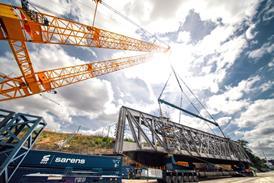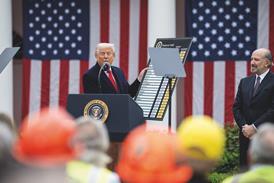December 6 - Some abnormal loads transporting heavy pieces of machinery around the country are to be allowed to travel faster on motorways and dual carriageways - halving the cost of any congestion they cause.
Around a hundred of these heavy loads weighing in at more than 150 tonnes are transported each year and have been restricted to 12 mph. However, technological advances in the vehicles and trailers concerned mean that it has now been possible to revise these speed limits.
From 29 November 2010 the current speed limit for articulated vehicles weighing between 150 and 250 tonnes will increase to 25 mph. For draw-bar trailer vehicles weighing between 150 and 250 tonnes it will increase to 20 mph. Girder frame trailers will remain restricted to 12mph.
UK Coalition Government Roads Minister, Mike Penning said: "This change is long overdue and a sensible move that is welcomed on all sides.
"It is essential we move such heavy pieces of machinery around the country and although most abnormal loads are scheduled to avoid times when the roads are busy, some congestion on the roads as a result of these operations is unavoidable.
"By increasing the speed we can cut both costs for businesses moving these loads and improve safety."
Research into the changes was carried out on behalf of the Highways Agency last year, followed by consultation with the industry. The research suggested that despite these loads being transported outside of peak times, the cost to the economy as a result of the congestion caused was estimated to be GBP5.1 million (USD7.96 million) per year. By increasing the maximum permitted speed of certain loads this figure is expected to fall to GBP2.5 million (USD3.90 million).
The research also showed the increased speed would have only a marginal impact on wear and tear on the roads and the police have welcomed the move as they believe it will reduce the number of accidents caused by traffic crashing into slow moving loads from the rear.
















